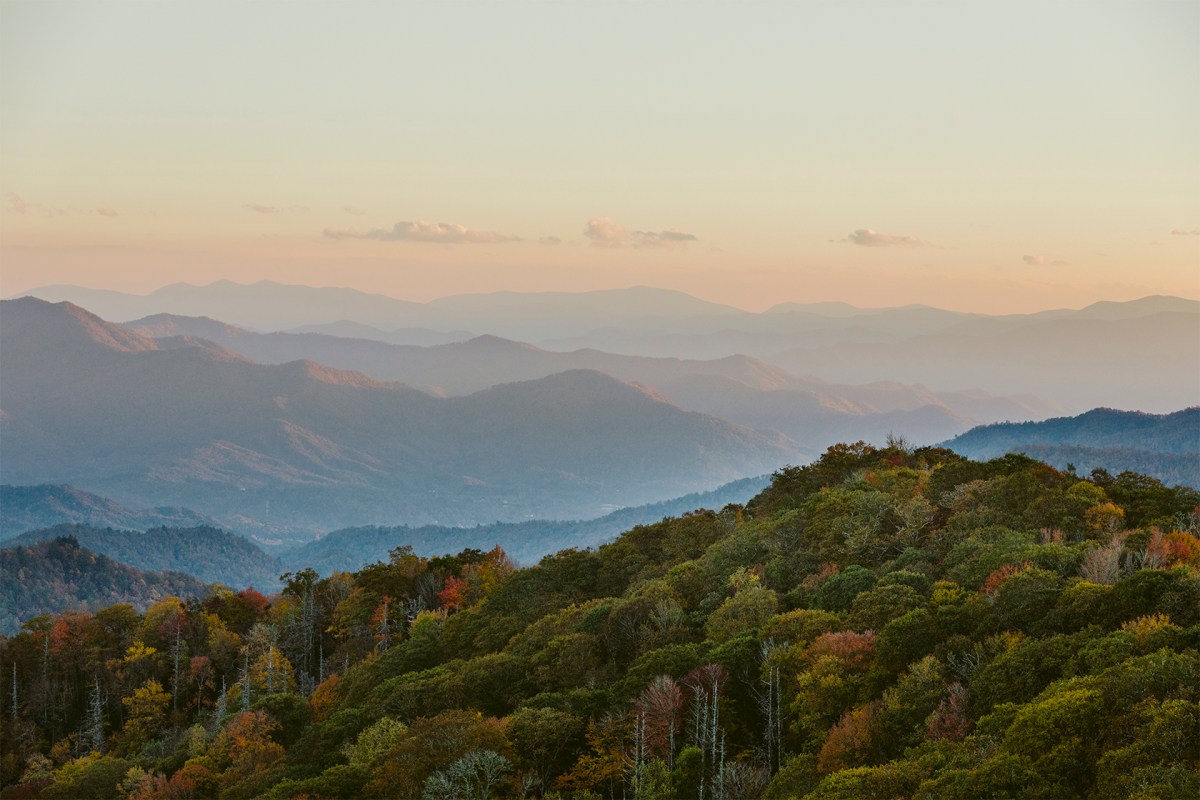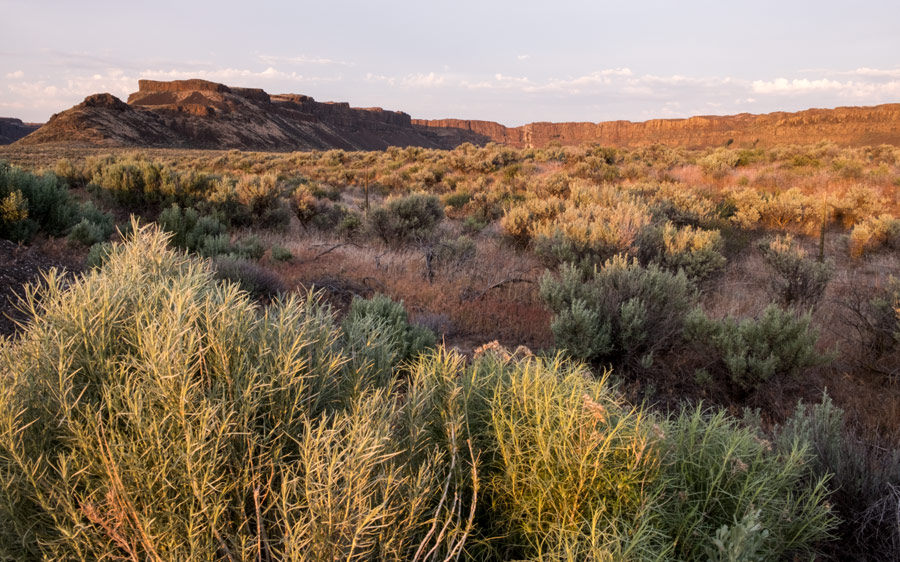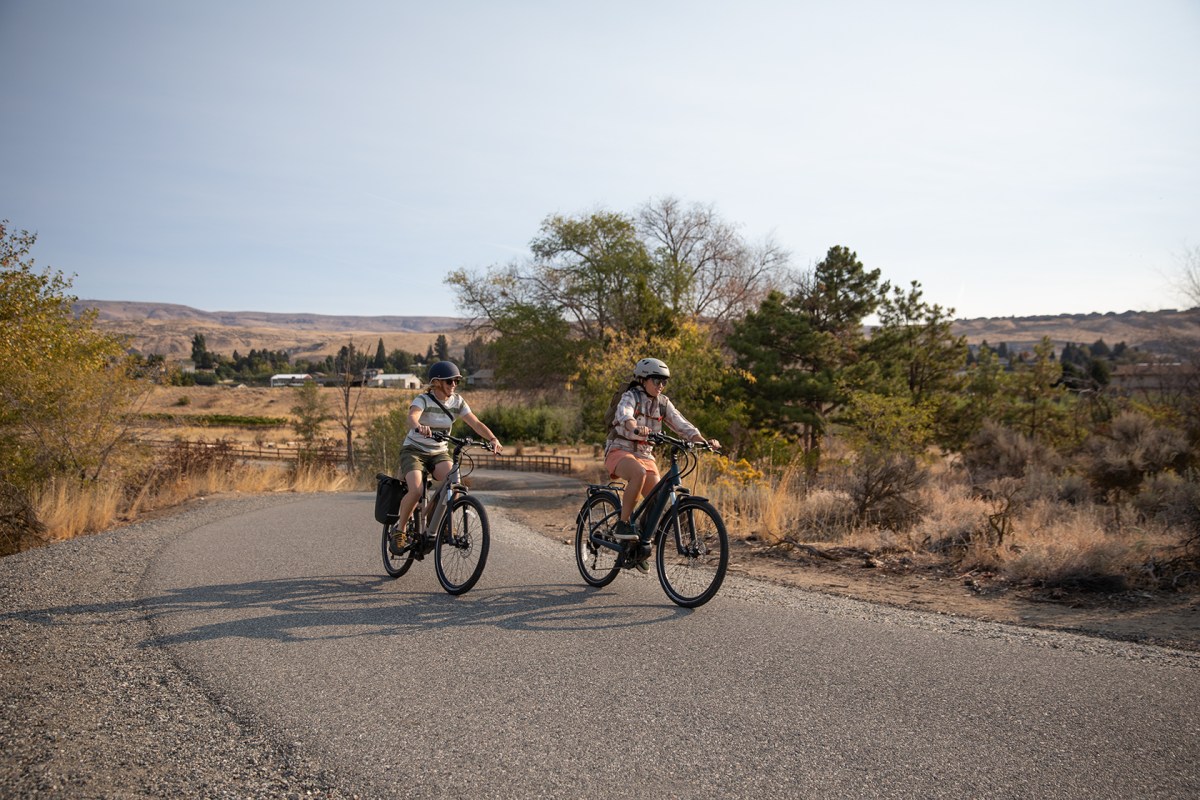The end of the year is often a time of reflection. It’s when many people look back on the last 12 months, celebrate accomplishments and set new goals for the year ahead. The co-op community—of 20 million members and nearly 15,000 employees—has a lot to reflect on this year. In 2021, members and employees raised their voices and dollars in support of causes that improve the outdoors. That work made a big impact.
Through collective efforts, the co-op community helped pass two bills this year that tackle the climate crisis and make the outdoors a more equitable place to recreate. Nearly 21,000 of you wrote 100,000 messages to Congress urging our representatives to act on issues related to climate change, outdoor equity and conservation.
We all accomplished this through the Cooperative Action Network, a grassroots advocacy platform that provides opportunities for anyone to take a stand on policies that impact the outdoors. Right now, it focuses on nine initiatives, and co-op members and others can email Congress directly through the CAN website.
“In the first few months since launching our Cooperative Action program, the power of our millions-strong co-op community has already created a stir in Washington, D.C. and demonstrated the inherent passion of our members to improve life outside,” says Alicia Harvie from REI’s Community Advocacy & Impact team. “When you’re part of a community of millions, each person taking a seemingly small step starts adding up to big change.”
Below, learn more about the issues the co-op community championed, from planting trees to fighting climate change to supporting kids getting outside. Then, pick a goal for 2022. We’ve included a list of New Year’s resolution-style ideas for gaining even more momentum in the year ahead.
Because while there’s much to celebrate, there’s still a lot of work to do.
Cooperative Action Network
These are the initiatives the Cooperative Action Network began championing in April 2021. Click through each initiative to see the progress we’ve made, the work we still need to do and how the co-op community has helped.
REPLANT Act
The REPLANT Act aims to triple reforestation rates in national forests. The law frees up millions of dollars for the U.S. Forest Service to replant and restore forests that have been decimated by wildfire, drought, pests and disease.
LEARN MORE
Why it matters: Forests help capture carbon dioxide, a planet-warming greenhouse gas that contributes to climate change. The goal is to plant 1.2 billion trees in 10 years, which supporters say would help capture up to 75 million metric tons of carbon in a decade, essentially erasing the equivalent of 8.53 billion gallons of gasoline.
Status: Congress passed the REPLANT Act this fall as part of the Infrastructure Investment & Jobs Act, also known as the bipartisan infrastructure package. President Biden signed it into law in November.
How you’ve helped: About 12,000 of you sent 33,970 messages to Capitol Hill, rallying around the need to heal national forests and harness their power to combat climate change. Importantly, 2,200 of you who wrote letters added a personal touch to your message. Bill sponsors reported that your letters created a buzz in the halls of Congress and attracted additional members of Congress to support the bill.
What you can do now: Thank your members of Congress for supporting the REPLANT Act. This shows them how much you care about the policy and pay attention to their actions. Then, take some time outside to marvel at all the benefits that trees provide.
Let Nature Do Its Thing
Launched in November, this initiative urges lawmakers to prioritize policies that invest in natural climate solutions like reforestation and wetlands conservation, expand access to carbon markets and expand active transportation opportunities beyond driving a car.
LEARN MORE
Why it matters: The places where we love to recreate—parks, forests, grasslands, waters—can help lessen the effects of weather extremes and even bring carbon back down to earth. For instance, forests can capture carbon and urban parks can help offset the effects of heat islands. Harnessing nature to prevent the worst effects of the climate crisis is often a cost-effective strategy that also provides economic and social benefits to nearby communities.
Status: Many different pieces of legislation could support this initiative. Among them is the Build Back Better Act, which includes a framework for cutting greenhouse gas pollution by 2030 and advancing environmental justice. The House passed that bill, and now it awaits action in the Senate.
How you’ve helped: Nearly 1,700 of you have sent messages to Congress since we launched this initiative in November. Keep up the momentum.

America the Beautiful
The Biden administration’s America the Beautiful initiative sets an ambitious goal to conserve at least 30% of our nation’s lands and waters by 2030 to protect biodiversity, lessen the effects of climate change and expand opportunities for people to enjoy nature (for instance, by ensuring all people have access to quality parks).
LEARN MORE
Why it matters: Every 30 seconds, America loses a football field’s worth of natural area to development, which can harm wildlife habitat, hurt water and air quality, and make it harder for people to connect with nature. Losing natural spaces also threatens the ability of communities to adapt to weather extremes such as floods, wildfires and landslides.
Status: Many different pieces of legislation support the America the Beautiful Initiative. They include measures to protect public lands, provide landowners with conservation tools, connect youth with stewardship opportunities and more. Among them is the Protecting America’s Wilderness and Public Lands Act (H.R.803), a collection of bills that would protect more than 4 million acres of public lands and more than 1,000 miles of rivers. This bill has passed in the House and awaits action in the Senate.
How you’ve helped: Nearly 4,800 of you have sent more than 14,000 messages to Congress in support of America the Beautiful.
Right to Vote
The John Lewis Voting Rights Advancement Act would restore and update the Voting Rights Act of 1965 (VRA) to prevent discriminatory voting practices at state and local levels. This bill would modernize the formula used to identify areas where discrimination in voting is happening. It would also require public announcements of changes to voting policies to ensure greater transparency, and it would expand federal authority to send federal observers to locations with substantial risk of discrimination at the polls.
LEARN MORE
Why it matters: Voting is an important tool for addressing challenges such as climate change, threats to lands and waters, and inequitable access to the outdoors. But across the country, state and local governments have threatened the right to vote by conducting mass voter purges, closing polling places and passing laws that disproportionately prevent communities of color, Native Americans, Alaska Native communities, people with disabilities, students and other eligible voters from exercising their right to vote.
Status: The House passed the bill in August. It is awaiting action in the Senate.
How you’ve helped: The co-op community sent nearly 7,500 messages to the Senate this year in support of this bill, and nearly 9% of you included a personal note.
Outdoors for All Act
The Outdoors for All Act would expand outdoor recreational opportunities in urban and low-income communities across the nation. This bipartisan bill permanently authorizes the Outdoor Recreation Legacy Partnership (ORLP) program, which supports urban parks in underserved communities and guarantees funding for the program.
LEARN MORE
Why it matters: Nationwide, 100 million people—including 28 million children—do not have a park within a 10-minute walk from home. Green spaces are crucial for individual and community health and well-being, yet systemic barriers prevent many communities from reaping their benefits. The ORLP program creates more opportunities for people to access quality green space.
Status: The House passed the bill in February as part of the Protecting America’s Wilderness and Public Lands Act. It is awaiting action in the Senate.
How you’ve helped: To date, the co-op community has sent 6,600 messages to Congress in support of the Outdoors for All Act.

Outdoor Jobs for the 21st Century
Several bills and a proposal by the Biden administration outline a modern-day corps or public works program that tackles the climate crisis and invests in the next generation of outdoor stewards. A civilian climate corps could provide outdoor infrastructure projects like trail maintenance, wetlands restoration, solar panel installations and more. Also, supporters say it could create economic opportunities.
LEARN MORE
Why it matters: Nearly a century ago, a program called the Civilian Conservation Corps employed millions of workers in stewardship projects that built the national and state park systems during the Great Depression. Supporters say a similar program could be helpful today as the country seeks to combat climate change, boost its economy and help communities affected by the coronavirus pandemic.
Status: A variety of bills and proposals comprise this initiative. Among them is the Build Back Better Act, which includes $4.28 billion to the Department of Labor over a five-year period through September 30, 2026, for employment and training activities in industry sectors or occupations related to climate resilience or mitigation. The House passed this bill, and it is awaiting action in the Senate.
How you’ve helped: More than 3,100 of you sent more than 9,100 messages to Congress championing a modern-day Conservation Corps. Hundreds of you told legislators about family members who benefited from the original CCC in the 1930s, or shared personal accounts about being environmental educators, firefighters, AmeriCorps alumni and more. Others shared what value a modern corps could bring to your state or community and how you have seen the power of the outdoors support your well-being during the pandemic.
Parks, Jobs and Equity Act
The Parks, Jobs, and Equity Act would invest $500 million to address historic inequities in park access and help communities recover from the pandemic by providing job opportunities. Bill supporters say this would aim to create or upgrade as many as 1,000 parks across the country, save 100,000 at-risk seasonal jobs and create 8,000 new ones. It would generate $1.37 billion in economic activity and increase outdoor equity.
LEARN MORE
Why it matters: Throughout the pandemic, local parks have been a saving grace for those seeking respite and renewal outside. However, financial impacts of the pandemic have hurt city and state park budgets. This decrease in funding disproportionately harms communities that lack access to green space. In the U.S., about 70% of low-income communities live in nature-deprived areas. An analysis by The Trust for Public Land revealed parks that primarily serve people of color are, on average, half the size and used by nearly five times the number of people compared to green spaces used by majority-white communities.
Status: No movement
How you’ve helped: More than 2,200 of you have sent messages to Congress.
Connecting America’s Active Transportation System Act
The bipartisan Connecting America’s Active Transportation System Act (S.684/H.R. 2991) would invest $2.5 billion to develop “active transportation networks” nationwide that connect disparate running, biking and walking trails. By linking these paths, the bill aims to make it safer and cleaner to get from one place to another, particularly for commuting, running errands and recreating.
LEARN MORE
Why it matters: Nearly half of the trips Americans take are within a 20-minute bike ride. More than one-fifth are a 20-minute walk. Connecting pedestrian and bike trails within and across communities would make it easier, safer and more efficient for people of all ages and abilities to get where they need to go without a car. If fully funded, this bill would reduce pollution and traffic, increase physical activity, enhance transportation equity for people living with disabilities and in underserved rural, suburban and urban communities, and improve equitable access to outdoor recreation and transportation.
Status: This bill was authorized as part of the infrastructure package. It will need to receive funding through the Congressional appropriations process.
How you’ve helped: More than 3,100 people in our co-op community sent more than 9,000 messages to Congress championing more biking and walking paths.

Every Kid Outdoors
Every U.S. 4th grader and their family get free entry to national parks and other federal lands, thanks to the Every Kid Outdoors (EKO) program. However some have asked Congress to increase funding for this program, which was permanently established in 2019. Supporters of the increase say the money would allow more kids to visit the parks by addressing transportation and other barriers that make it challenging for families in underserved communities to access this program.
LEARN MORE
Why it matters: Research shows that access to safe, outdoor areas can improve a child’s physical and mental health. Visiting a national park is one way to explore nature. Supporters say fully funding the Every Kid Outdoors program would help more children experience the nation’s public lands.
Status: No movement.
How you’ve helped: Nearly 1,600 of you sent more than 4,500 messages to Congress highlighting the importance of getting kids outside.
How You Can Help in 2022
We love a good New Year’s resolution. Still in need of one for 2022? We have ideas.
Adopt one new habit.
Bike to work. Compost your food scraps. Walk more than you drive. Your habit doesn’t need to be big to make a difference.
Set up a recurring donation.
Pick an organization that supports a cause you care about. Then, set up a recurring donation to support it. Even $5 a month counts.
Volunteer your time or talents.
Give the gift of your time to an organization that needs the help, whether it’s picking up trash around town or canvassing for a cause. Another option: Ask an organization whether you can contribute your talents pro bono. You never know who may need your language skills, writing chops or handiness with tools.
Buy from brands that align with your values.
Not all brands produce goods with the planet in mind. Be a conscious consumer by understanding how the brands you support craft their products and source their labor.
Write to Congress.
So many of you wrote letters to Congress this year urging them to act on important initiatives related to climate change, outdoor equity and natural spaces. Continue this habit by writing to policymakers in support of REI’s CAN initiatives and any others you support.
Talk to your friends more.
We know, we know—these conversations can be tough. But it’s great to talk to those you love about issues important to you, such as climate change and outdoor equity. Don’t be afraid to speak up.
Set a reading goal.
Because knowledge is power.
Consume less.
Eat less meat. Buy used gear. Replace one plastic product with a more sustainable version every month. Small changes add up.
Commit to a cause.
It’s easy to get involved when it’s a cause you really care about. Find one that lights you up, then research ways to regularly support it in the new year.


